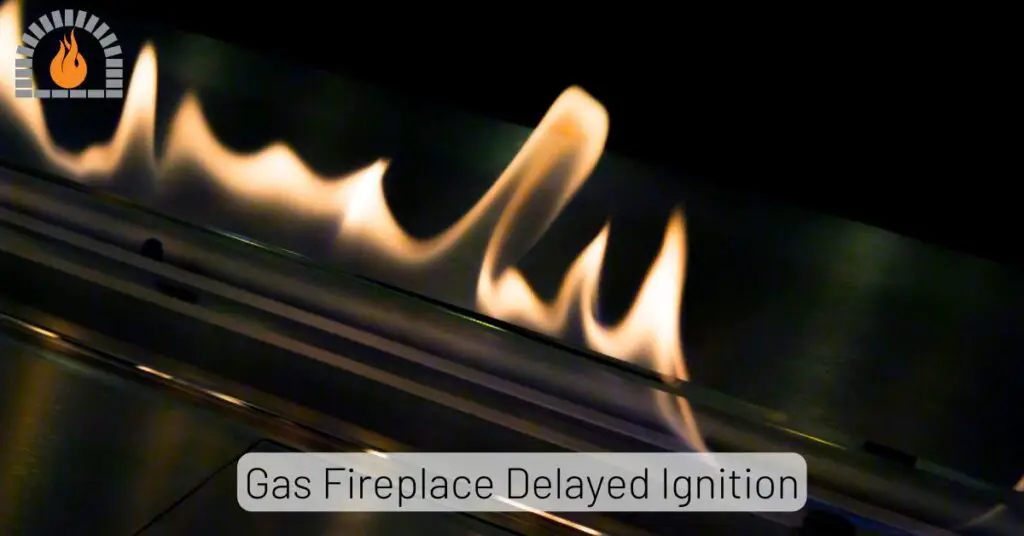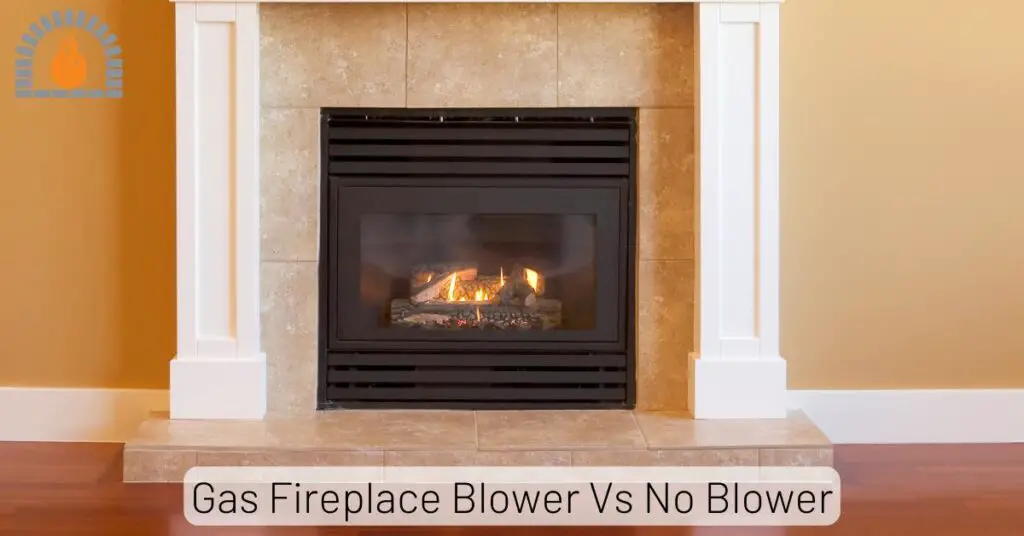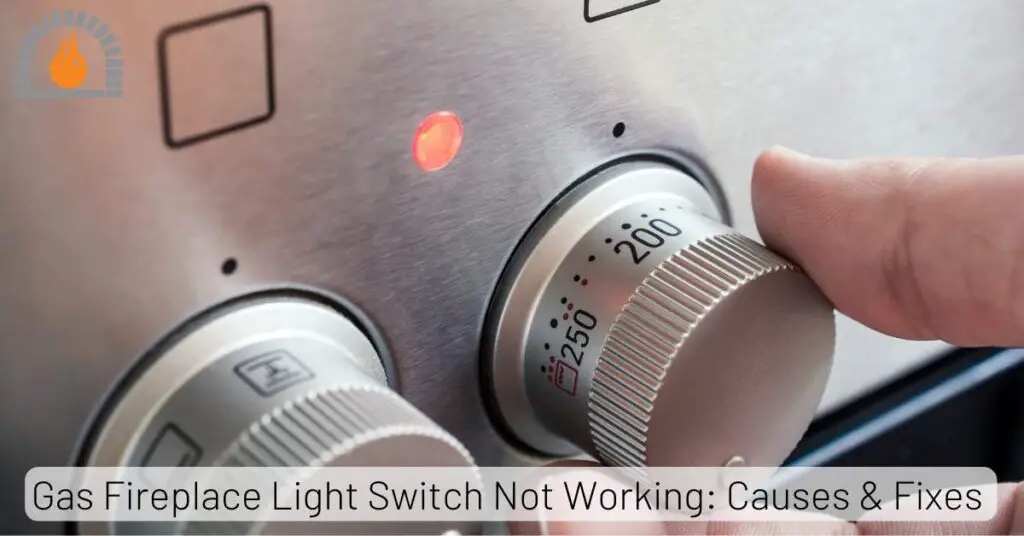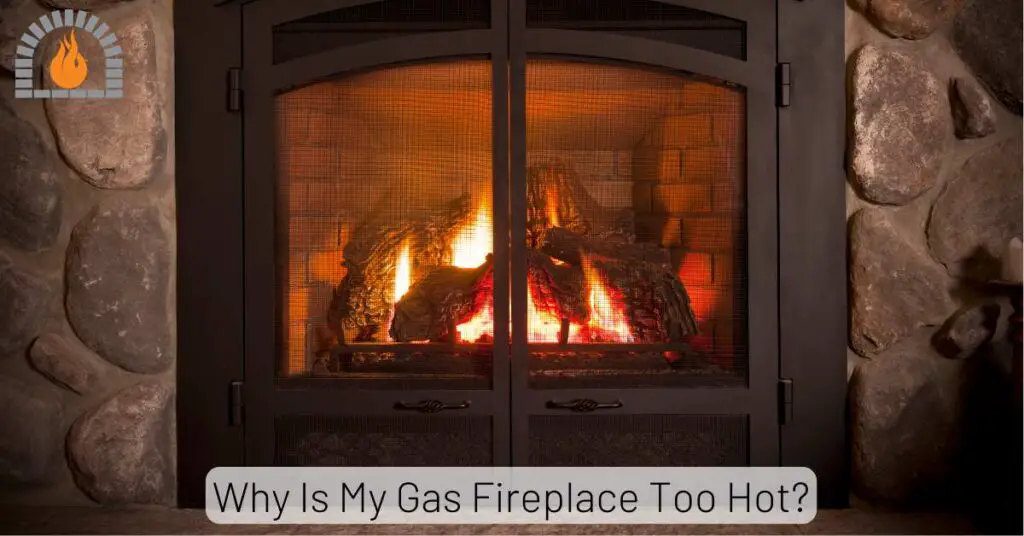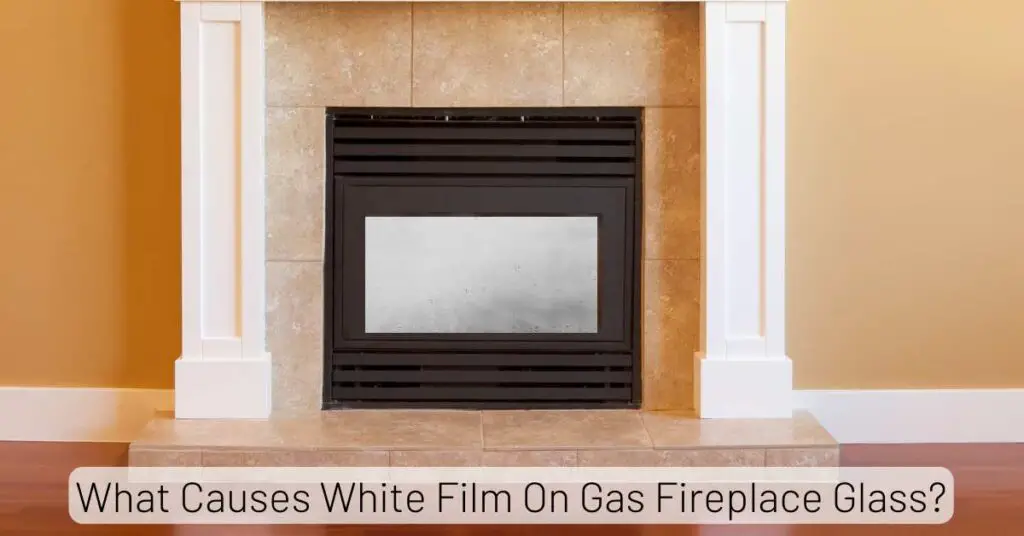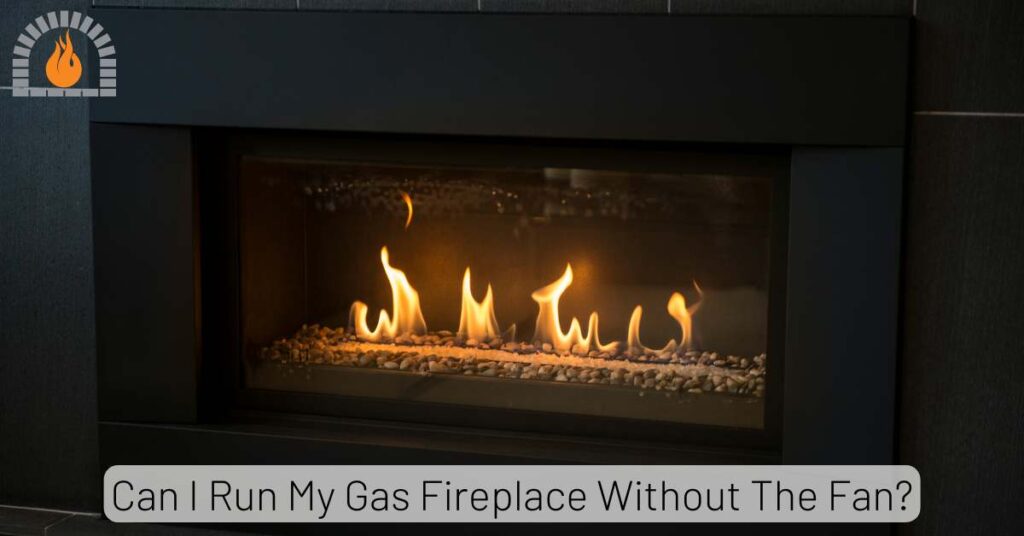If you’ve recently noticed your gas logs making fluttering noise, you’re not alone. Many homeowners experience this peculiar sound, which can range from a soft whisper to a more pronounced disturbance.
While it might seem alarming at first, understanding the reasons behind gas fireplace making fluttering noise is essential for both your peace of mind and the proper functioning of your fireplace.
In this blog post, we’ll explore the common causes of fluttering noises in gas logs, how to diagnose the issue, and practical solutions to restore the quiet comfort of your home.
Keep reading!!
Key Takeaways
- Fluttering noises in gas logs are often caused by air flow issues, improper gas pressure, or debris in the burner.
- Regular maintenance and cleaning can prevent most noise-related problems.
- Adjusting the air shutter, checking gas pressure, and inspecting the burner are common fixes.
- If DIY solutions don’t work, consult a professional to ensure safety and proper functionality.
Why Gas Logs Making Fluttering Noise?
The primary reasons for gas logs making fluttering noise is an airflow imbalance, which can disrupt the combustion process, leading to irregular sounds.
A dirty burner or logs can obstruct the gas flow, causing fluttering noises as the gas struggles to ignite properly. Low gas pressure can also contribute to incomplete combustion, resulting in an unsettling sound.
fluttering noise in gas logs
Reasons for Gas Fireplace Making Fluttering Noise
1) Airflow Imbalance
An airflow imbalance is one of the primary culprits behind fluttering gas logs. If the airflow isn’t balanced correctly, it can lead to irregular combustion, resulting in a fluttering sound. Ensure that the damper and vents are open and unobstructed.
2) Dirty Burner or Logs
Over time, dust and debris can accumulate on the burner and gas logs, disrupting the even flow of gas. Cleaning the burner and logs regularly can eliminate fluttering noise in gas logs.
3) Low Gas Pressure
Inadequate gas pressure can lead to incomplete combustion, causing the ventless gas fireplace making fluttering noise. Contact your gas provider to ensure your gas pressure is within the recommended range.
4) Thermocouple Issues
A malfunctioning thermocouple can cause intermittent gas flow, leading to gas fireplace making fluttering noise. Inspect the thermocouple and replace it if necessary.
5) Thermal Expansion and Contraction
Gas logs undergo rapid temperature changes during operation. As they heat up and cool down, the metal components can expand and contract, resulting in minor movements that could lead to a fluttering noise.
6) Loose Components
Over time, various components of the gas logs, such as logs, grates, or decorative elements, can become loose due to vibrations or regular usage. These loose parts may move slightly when the gas fireplace operates, causing the gas fireplace popping sound & fluttering sound.
How to Fix Gas Fireplace Making Fluttering Noise
- Gently clean the burner and gas logs using a soft brush or compressed air. Ensure there is no debris hindering the gas flow.
- Verify that the gas pressure is within the manufacturer’s recommended range. If it’s too low, contact your gas provider for adjustments.
- A flickering pilot light can contribute to fluttering sounds. If the pilot light is unstable, it might need cleaning or realignment.
- Ensure the damper and vents are open and balanced to allow proper airflow. Adjusting the damper often alleviates fluttering noises.
- Regular maintenance by a qualified technician can address underlying issues and prevent future occurrences of fluttering noise.
Preventing Gas Fireplace Fluttering Noises
- To prevent your gas logs making fluttering noises, schedule annual maintenance for your gas fireplace to keep components clean and in optimal condition.
- Invest in high-quality gas logs less likely to accumulate dust and debris.
- Ensure your gas fireplace is installed correctly, with attention to venting and gas line connections.
Visual Guide: Troubleshooting Gas Log Noises
| Cause | Symptoms | Solution |
|---|---|---|
| Air Flow Issues | Irregular flame, fluttering | Adjust the air shutter |
| Improper Gas Pressure | Weak or overly strong flame | Check gas pressure with a professional |
| Debris in Burner | Sputtering flame, noise | Clean burner ports |
| Ventilation Problems | Drafty fireplace, noise | Inspect and clear venting system |
| Worn-Out Components | Persistent noise, poor performance | Replace burner or gas valve |
When to Call a Professional
While many issues can be resolved with DIY fixes, some problems require expert attention. If you’ve tried the steps above and the fluttering noise persists, or if you’re unsure about handling gas-related components, it’s time to call a professional.
A certified technician can diagnose and repair the issue safely and efficiently.
You May Also Like to Read:
FAQ
Why gas fireplace making noise when on?
A gas fireplace may make noise due to popping from igniting gas, air trapped in the gas lines causing hissing, the fan producing whirring sounds, or expansion and contraction of materials leading to clicking. Inconsistent gas pressure can also create irregular combustion noises.
Why gas fireplace pilot light making noise?
A gas fireplace pilot light may make noise due to a fluttering sound from an oversized pilot jet, which increases gas flow and creates a louder flame. Other causes include a long pilot flame or gas pressure issues, leading to roaring or hissing sounds. If the noise persists, it’s best to consult a professional for inspection and adjustments.
Is it normal for gas fireplace to make noise?
It is normal for a gas fireplace to make some noise, such as popping or clicking from metal expansion. However, excessive or unusual sounds may indicate issues. Hissing or roaring could signal a gas leak, which is dangerous and requires immediate attention. Buzzing may result from gas flow restrictions, while whistling can indicate vent obstructions or incorrect gas pressure.
Final Thoughts
Fluttering noises in gas logs can be a nuisance, but they’re usually a sign of a fixable issue. By understanding the common causes and following the steps outlined in this guide, you can restore your fireplace to its quiet, efficient operation. Remember, regular maintenance is key to preventing future problems.
If in doubt, don’t hesitate to seek professional help to ensure your fireplace remains a safe and enjoyable feature in your home.
Affiliate Disclosure: Fireplaceadviser.com is a participant in the Amazon Services LLC Associates Program. We may earn a commission when you click on certain links on this site and purchase.

Hello!! I am Jamal Khan. I often fix my home electric heaters and gas stove problems and research the common issues in the heating units to improve my knowledge and expertise. The aim of establishing fireplaceadviser.com is to share my expertise and knowledge with my audience.







